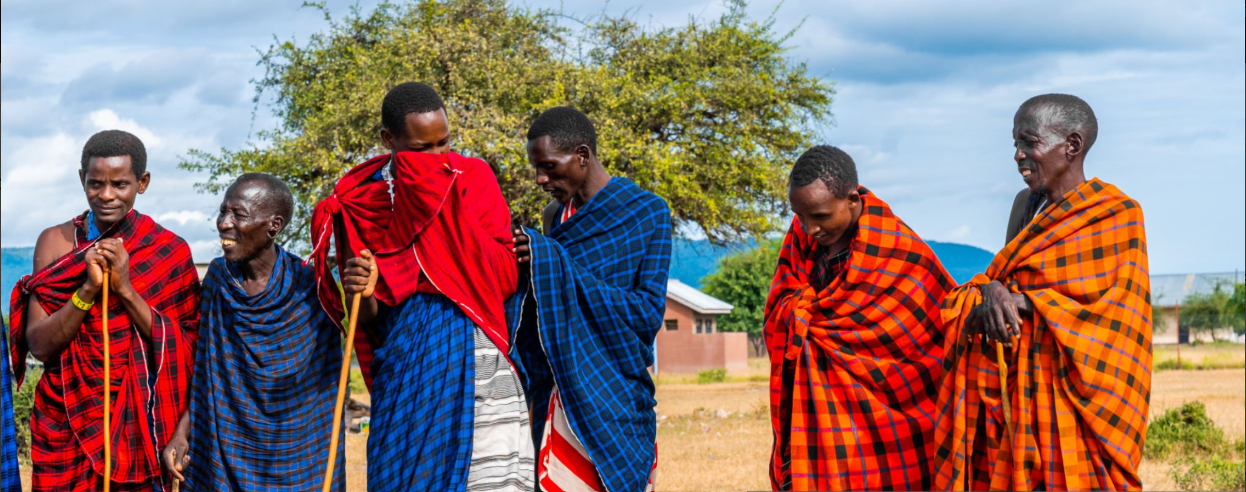Ethical Community Tourism Projects in Tanzania: Empowering Locals While Preserving Culture and Nature
Ethical Tanzania Tourism, Tanzania is renowned for its breathtaking landscapes, diverse wildlife, and rich cultural heritage. While the country attracts millions of tourists each year to destinations like Mount Kilimanjaro, the Serengeti, and Zanzibar, there is a growing movement toward ethical community tourism. This form of tourism prioritizes sustainability, local empowerment, and cultural preservation, ensuring that tourism benefits the people who call these places home.
Ethical community tourism projects in Tanzania provide travelers with authentic experiences while supporting education, healthcare, and economic development in rural areas. These initiatives often involve partnerships between local communities, NGOs, and responsible tour operators. In this article, we explore some of the most impactful ethical community tourism projects in Tanzania, highlighting how they contribute to sustainable development.
1. The Hadzabe Ethical Tanzania Tourism Program (Lake Eyasi)
Background
The Hadzabe are one of Tanzania’s last remaining hunter-gatherer tribes, with a lifestyle that has remained largely unchanged for thousands of years. However, modernization and land encroachment threaten their traditional way of life.
The Project
The Hadzabe Cultural Tourism Program near Lake Eyasi offers visitors a chance to learn about their unique culture while providing the tribe with a sustainable income source. Tourists participate in activities such as:
-
Traditional hunting and gathering with Hadzabe men using bows and arrows.
-
Learning about medicinal plants and honey gathering.
-
Participating in tribal dances and storytelling.
Ethical Impact
-
Direct financial benefits go to the Hadzabe, reducing reliance on unsustainable practices.
-
Raises awareness about indigenous rights and cultural preservation.
-
Encourages respect for their land and traditions.
2. The Maasai Community-Based on Ethical Tanzania Tourism (Ngorongoro & Simanjiro)
Background

The Maasai are one of Africa’s most iconic tribes, known for their semi-nomadic pastoralist lifestyle. However, land disputes and wildlife conservation efforts have often marginalized them.
The Projects
Several Maasai-run initiatives promote ethical tourism:
**A. ** Simanjiro Maasai Women’s Cultural Tourism Program
-
Run by Maasai women, this project allows visitors to experience daily life in a Maasai village.
-
Activities include beadwork workshops, traditional cooking, and guided nature walks.
-
Profits support women’s education and healthcare.
**B. ** Ngorongoro Maasai Environmental Conservation Initiative
-
Combines cultural tourism with wildlife conservation.
-
Visitors stay in eco-friendly Maasai bomas (homesteads) and learn about coexistence with wildlife.
-
Funds support anti-poaching efforts and sustainable grazing practices.
Ethical Impact
-
Provides an alternative income to cattle herding, reducing human-wildlife conflict.
-
Empowers Maasai women through economic independence.
-
Educates tourists on indigenous conservation knowledge.
3. The Chumbe Island Coral Park (Zanzibar)
Background
Chumbe Island is a privately managed marine sanctuary off the coast of Zanzibar, renowned for its coral reefs and eco-tourism initiatives.
The Project
-
Chumbe Island Coral Park is a pioneer in eco-friendly tourism, featuring:
-
A fully sustainable eco-lodge powered by solar energy.
-
A marine protected area with guided snorkeling tours.
-
Environmental education programs for local schools.
-
Ethical Impact
-
Protects endangered coral reefs through responsible tourism.
-
Employs and trains local Zanzibaris in conservation and hospitality.
-
Educates future generations on marine preservation.
4. The Rubondo Island Community Conservation Project (Lake Victoria)
Background
Rubondo Island National Park is a hidden gem on Lake Victoria, home to chimpanzees, elephants, and rare bird species.
The Project
-
The Rubondo Community Tourism Initiative involves local fishing communities in conservation.
-
Tourists can:
-
Stay in community-run guesthouses.
-
Participate in tree-planting and wildlife monitoring.
-
Buy handicrafts made by local women.
-
Ethical Impact
-
Reduces illegal fishing and poaching by providing alternative livelihoods.
-
Strengthens community involvement in wildlife protection.
-
Promotes eco-tourism in an underrated destination.
5. The Amani Forest Reserve Ecotourism Project (Usambara Mountains)
Background
The Usambara Mountains are a biodiversity hotspot, but deforestation threatens its unique flora and fauna.
The Project
-
The Amani Forest Reserve offers guided nature walks and birdwatching tours led by local experts.
-
Visitors stay in community-owned lodges, with profits funding reforestation.
Ethical Impact
-
Protects endangered species like the Usambara eagle-owl.
-
Supports sustainable agriculture and beekeeping projects.
-
Encourages scientific research and eco-tourism.
6. The Cultural Tourism Program in Mto wa Mbu (Near Manyara)
Background
Mto wa Mbu is a vibrant village near Lake Manyara, home to over 120 ethnic groups.
The Project
-
The Mto wa Mbu Cultural Tourism Program offers:
-
Village walks with local guides.
-
Banana plantation tours and traditional cooking classes.
-
Art workshops with local painters.
-
Ethical Impact
-
Provides jobs for youth and women.
-
Promotes intercultural exchange.
-
Reduces pressure on nearby national parks by offering alternative attractions.
7. The Kilimanjaro Porters Assistance Project (KPAP)
Background
Porters on Mount Kilimanjaro often face exploitation, carrying heavy loads for low wages.
The Project
-
KPAP advocates for fair wages and working conditions for Kilimanjaro porters.
-
Travelers can book with KPAP-approved tour operators who ensure:
-
Fair pay and proper equipment.
-
Medical support and insurance.
-
Ethical Impact
-
Improves livelihoods for porters and their families.
-
Promotes responsible trekking practices.
-
Sets ethical standards for Kilimanjaro expeditions.
The Future of Ethical Tourism in Tanzania
Ethical community tourism projects in Tanzania demonstrate how travel can be a force for good. By supporting these initiatives, tourists contribute to:
✔ Poverty alleviation through fair wages and local employment.
✔ Cultural preservation by valuing indigenous traditions.
✔ Environmental conservation by funding eco-friendly projects.
As travelers become more conscious of their impact, ethical tourism will play a crucial role in ensuring Tanzania’s natural and cultural treasures endure for future generations. By choosing community-based experiences, visitors not only enjoy a deeper connection with the country but also leave a positive legacy.
How You Can Support Ethical Tourism in Tanzania
-
Book with responsible tour operators (e.g., those partnered with KPAP or Fair Trade Tourism).
-
Stay in community-run lodges rather than large international chains.
-
Respect local customs and engage meaningfully with communities.
-
Spread awareness by sharing ethical travel experiences.
Tanzania’s ethical tourism projects prove that travel can be transformative—for both visitors and locals. By making mindful choices, we can ensure that tourism remains a tool for sustainable development rather than exploitation.









